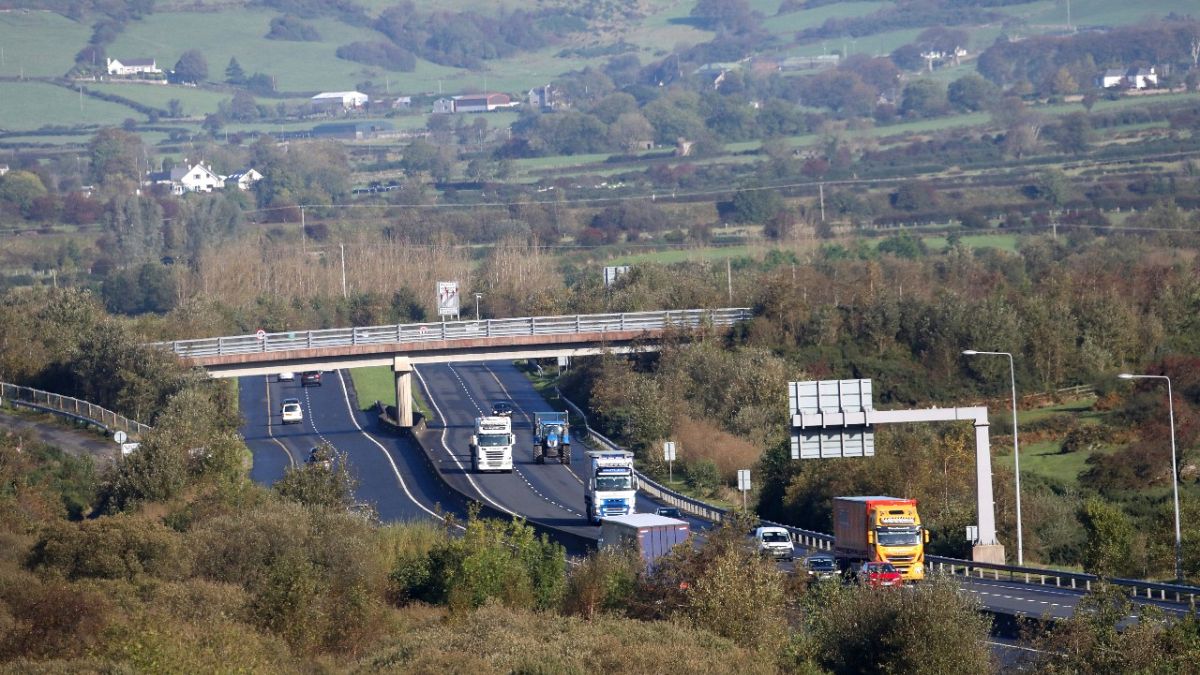UK MPs have heard that Brexit risks negative impacts on crime and trade in Northern Ireland when the transition period expires at the end of the year.
Brexit risks negative impacts on crime and trade in Northern Ireland when the transition period expires at the end of the year, two different UK parliamentary committees were told on Wednesday.
Northern Ireland's justice minister said organised crime could benefit from exploiting the north-south land border on the island of Ireland, should the UK and the EU fail to strike a deal on trade and future relations.
Meanwhile, industry leaders said that businesses were not ready for the new trading arrangements that will kick into play after the post-Brexit transition period ends on December 31, some of which will apply even if there is an agreement.
Despite some reports of progress between London and Brussels, there is no sign of a breakthrough as talks go down to the wire. Even if an accord is struck, it needs enough time to be ratified by both British and European parliaments.
Potential crime 'bonanza'
Naomi Long, Justice Minister in the Northern Ireland Executive and leader of the Alliance Party, told the Northern Ireland Affairs Committee that a no-deal scenario would mean no formal security partnership between the UK and the EU.
The territory would lose access to structures such as the European Arrest Warrant and EU-wide agencies such as Europol, and the two sides would revert to conventions dating from the 1950s, she said.
This, added to new trade barriers resulting from a radical change in the economic relationship, would exacerbate concerns over the black economy.
"If we have increased differentials in terms of tariffs and other issues around the border, then we will end up with a potential bonanza for organised crime," the minister said.
Even if a deal was agreed, she added, some of the alternative measures would not be as good or effective compared to current EU systems.
Long's comments echoed those of a senior Northern Ireland police official, who told a House of Lords committee on Tuesday that organised gangs could exploit the Irish border, especially in the period following the transition period.
Other UK police chiefs and the National Crime Agency have also warned that the fight against international crime will be slowed if the UK loses access to EU systems.
Business 'not ready' for January 1
Another group of MPs, on the Future Relationship with the European Union Committee, heard complaints that Northern Ireland is not ready for new arrangements, regardless of whether a trade deal is in place or not.
"We're really concerned because things simply won't be ready, and business will not be ready, and the supply chain will not be ready," said Aodhán Connolly, Director of the Northern Ireland Retail Consortium.
"Even if we do get that good FTA (Free Trade Agreement) with zero quotas and zero tariffs, there are still going to be new costs," he went on, adding that uncertainty over extra checks, charges and red tape threatened shipments of some food products in particular.
"That means that until there is an agreement on those things with the EU, we will not be able to move them from Great Britain to Northern Ireland," Connolly added.
Stephen Kelly, Chief Executive of Manufacturing Northern Ireland told the committee that new processes and systems were still being worked out or had only just been unveiled.
"Northern Ireland's business community will not be ready for the 1st of January. Quite simply, it doesn't have the detail, nor the time required, and with all the will in the world, in six weeks we won't get there," he said, appealing for an agreement to be reached allowing for a grace period at the start of 2021.
Border uncertainty
Under the Northern Ireland Protocol, part of the binding Brexit divorce deal struck last year, Northern Ireland will follow EU customs rules and remain aligned to some aspects of the Single Market. In order to preserve an open land border with the Irish Republic, this means a regulatory divide in the Irish Sea.
A further complication is the UK government's legislative plan to override some of these measures if necessary, breaching the accord and international law. Dublin has warned that a trade deal is impossible unless it is withdrawn.
A senior European Union official said on Wednesday that trade talks with the UK still face "substantial work" that might spill over into next week, with the deadline drawing ever closer.
The comments by Valdis Dombrovskis, the EU's top trade official, dampened hopes that a deal could be approved when the EU leaders meet in a video conference on Thursday.
